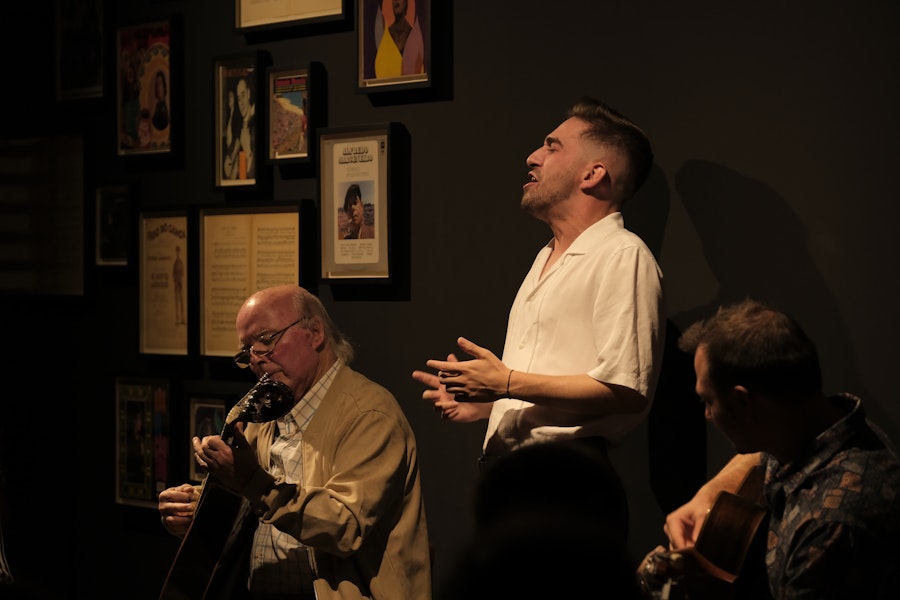Porto Fado Show Tickets
About this activity
Smartphone tickets accepted
- Your booking is confirmed immediately
- This option includes FREE cancellation—book now, risk-free!
Experience Highlights
Experience a musical experience on another level and listen to a live fado concert, a musical genre known for its strong emotional expressiveness. For about an hour you will enjoy songs that tell stories of love, pain, nostalgia and saudade, as the performers convey these emotions through their voices and facial expressions.
The activity takes place in a cosy atmosphere, allowing you to chat with the musicians before the show. A glass of port wine is also included.
- Enjoy an intimate experience at a Fado concert in Porto.
- Take the opportunity to chat with the musicians before the performance.
- Savour a glass of port wine
What’s included
- Ticket for a Fado concert in Porto
- Glass of port wine
- Time to talk to the musicians
Select date and time
Plan to arrive at least 5 minutes before your start time to ensure everything runs smoothly
Step by Step
Attendinga Fado concert allows you to enjoy a typically Portuguese experience. The performance takes place in an intimate setting, allowing you to interact with the musicians. The activity lasts approximately one hour and includes a glass of port.
The instrumentation of traditional fado includes the Portuguese guitar and the classical guitar (viola). The Portuguese guitar has a characteristic shape and a set of metal strings, which contribute to the unique sound of fado. Although Fado has a well-defined musical structure, performers often improvise and add personal nuances to the songs, making each performance unique.
The word "fado" comes from the Latin "fatum", meaning "fate" or "destiny", and is often considered a musical expression of melancholic feelings. Its origin is uncertain and the subject of debate among scholars. Some claim that Fado has its origins in the tradition of the songs of African slaves and sailors arriving in the port of Lisbon. Others believe it has its roots in the melodies of Lisbon's prostitutes and fishermen.
Over the centuries, Fado has been transformed, absorbing different musical and cultural influences. In the 19th century it began to be performed in Lisbon's cafés and taverns, becoming a popular genre among the working class. In the 20th century, it gained national and international prominence, thanks to artists such as Amália Rodrigues. Today, Fado is an integral part of Portuguese culture and has been recognised by UNESCO as intangible cultural heritage of humanity.
















